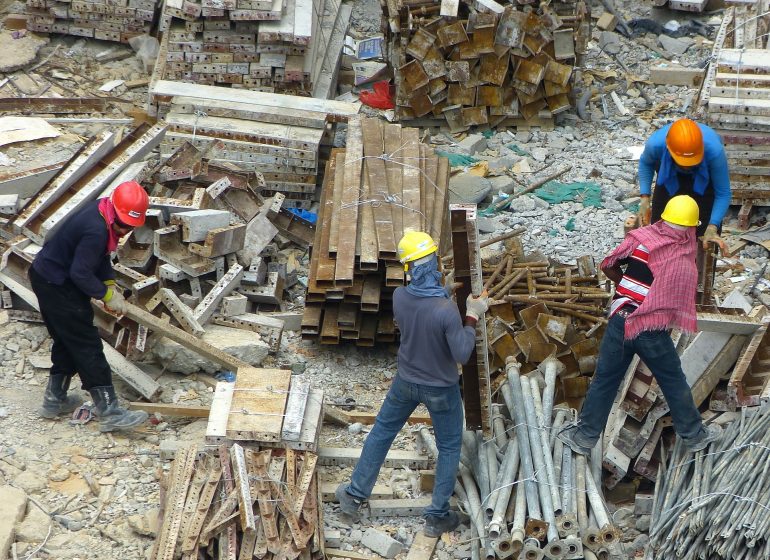Image Source: Google
Construction sites are notorious for generating large amounts of waste, making them significant contributors to landfill pollution and environmental degradation. However, there are steps that can be taken to minimize waste and promote sustainability in building site rubbish removal.
1. Implement a Waste Management Plan
Before the construction project begins, develop a comprehensive waste management plan that outlines how waste will be sorted, recycled, and disposed of responsibly. This plan should involve all stakeholders, including contractors, subcontractors, and workers, to ensure everyone is on board with the eco-friendly approach to building site rubbish expulsion.
2. Reduce, Reuse, and Recycle
The three Rs – reduce, reuse, and recycle – should be the guiding principles when it comes to handling waste on the construction site. Minimize waste by carefully planning materials and ordering only what is necessary. Reuse materials whenever possible, such as using leftover timber for scaffolding or repurposing old metal for other construction projects. Implement a recycling system for materials like cardboard, plastic, and glass.
3. Source Separation
Implement source separation, which involves sorting waste materials into different categories at the point of generation. This makes it easier to recycle and ensures that recyclable materials don't end up in the landfill. Provide designated bins or containers for different types of waste, such as wood, metal, concrete, and general waste.
4. Encourage Waste Reduction Techniques
Encourage construction workers and subcontractors to adopt waste reduction techniques, such as using efficient cutting methods to minimize material waste or using insulation materials with higher R-values to reduce energy consumption. By incorporating waste reduction into the construction process, the overall waste generated can be significantly reduced.
5. Partner with Recycling Facilities
Establish partnerships with local recycling facilities to ensure that the recycled materials are properly processed and reused. This can include partnering with recycling centers for specific materials like concrete, metal, or wood. By establishing these partnerships, you can ensure that the waste generated on your construction site is diverted from landfills and used in a more sustainable manner.
6. Educate and Train Workers
Properly educate and train all workers on the waste management plan and the importance of following eco-friendly practices. Provide clear instructions and guidelines on how to sort waste, where to dispose of different materials, and the benefits of recycling. By empowering workers with knowledge, they will be more likely to actively participate in the waste reduction efforts.
7. Use Sustainable Materials
Opt for sustainable materials whenever possible. This includes choosing materials that are recyclable, made from renewable resources, or have a low environmental impact. For example, consider using recycled steel or sustainably sourced timber. By using sustainable materials, not only are you reducing the waste generated but also promoting a more environmentally friendly construction industry.
8. Monitor and Evaluate
Regularly monitor and evaluate the waste management plan to identify areas for improvement. Keep track of the amount of waste generated, the recycling rates, and any issues that arise. By monitoring and evaluating the plan, you can make adjustments and implement new strategies to continuously improve the eco-friendly approach to rubbish removal.
Conclusion
By implementing these strategies and taking an eco-friendly approach to building site rubbish removal, construction projects can minimize waste and maximize sustainability. Not only does this help protect the environment and reduce landfill pollution, but it also promotes a more responsible and ethical construction industry.
